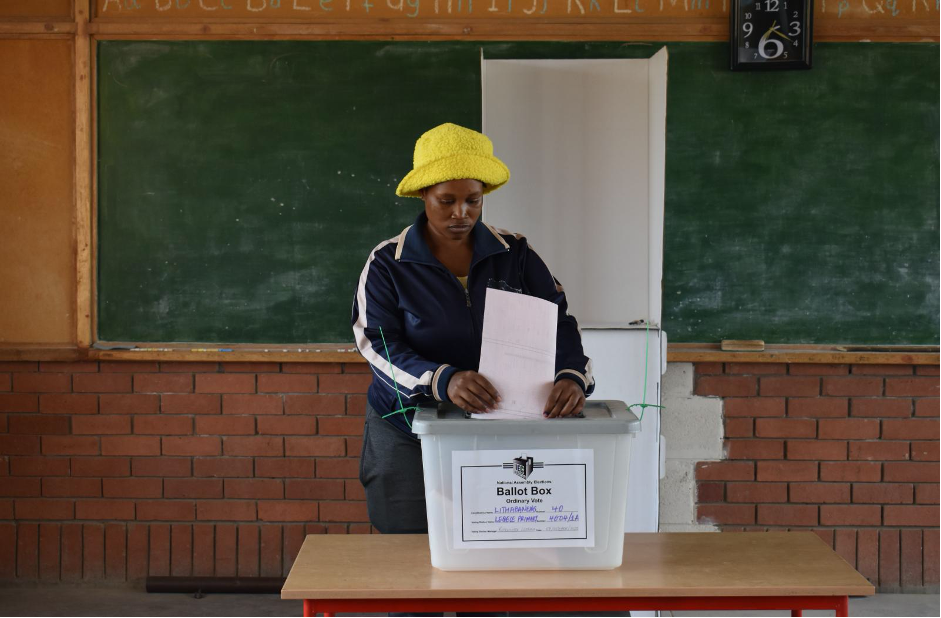By Blossom Charity Ukoha
Rwanda’s President, Paul Kagame, has boldly declared that “In Africa today, we recognize that trade and investment, and not aid, are pillars of development.”
Africa is a continent that firmly holds great promise for investors worldwide. It is a place blessed with tremendous economic potential with rewarding opportunities for investors and partners who are solely ready for business.
It has been described as the fastest-growing continent for foreign direct investment, ideal for investors. With raw materials like uranium, diamonds, petroleum, iron, and gold in Africa, investors can benefit from it.
For decades, oil has been at the centre of Africa’s growth and wealth. However, the world is gradually moving away from oil in favour of cleaner energy sources like natural gas. Natural gas emits 60% less CO2, making it a cleaner alternative to crude. It is predicted that natural gas production in Africa will go from 1.3m barrels of oil equivalent per day in 2021 to 2.7m in 2030.
Natural resources found in Africa are of significant interest to the world. Africa is also home to vast mineral resources. For instance, the Democratic Republic of Congo has the largest deposit of Cobalt in the world. Cobalt is used in lithium-ion batteries that power smartphones, electric vehicles, and many other electronic devices. Other valuable African mineral resources that have drawn broad interest include gold, diamond, titanium, iron, zinc, copper, gypsum, salt, sulfur, and phosphates.
More than two-thirds of Africa’s mineral resources are produced by South Africa, Nigeria, Algeria, Angola, and Libya. At $125bn per year, South Africa generates the most money from its mineral resources. Nigeria comes in second with $53bn per year, followed by Algeria ($39bn), Angola ($32bn) and Libya ($27bn). Besides its rich natural resources, Africa also has one of the lowest labour costs around the world because of its growing population.
Africa is also among the fastest-growing consumer markets in the world. The continent’s population of over 1 billion is described as savvy and brand-loyal. Moreover, with the increasing urbanization rates in Africa, experts predict that household consumption will hit $2.5 trillion by 2030.
GlobalData, a leading data and analytics company, notes that the fastest-growing economies in the region will be Morocco, Kenya, Ghana, Egypt, and South Africa, which are all forecast to register above 4% real GDP growth in 2021. It is then no doubt that there are multiple reasons why Foreign Investors should invest in Africa.
KEY REASONS AND OPPORTUNITIES TO CONSIDER
1. There are flexible policies to encourage more foreign direct investments in their countries. African governments appreciate the opportunities that trade and investments present, especially concerning the development of their respective nations. Most recently, the Egyptian government adopted a new investment law to facilitate private investment growth in the country.
2. Africa is home to raw materials in large quantities. Statistics from the United Nations Environment Programme (UNEP) reveal that the continent is home to 40% of the world’s gold and 30% of mineral reserves. This wealth is available for investors to key into.
3. There is a blossoming entertainment industry that continues to grow exponentially in Africa. Africa is a significant player in the entertainment industry globally. PricewaterhouseCoopers (PwC), a global consulting firm, projected that Nigeria’s consumer revenue in entertainment and media (E&M) will rank fourth as the fastest-growing country by 8.8 percent from 2022 to 2026. Nigeria is just one of many countries on the continent that promise such possibilities. In addition, Africa has renowned artists with credibility from cinema to music, making the continent ideal for a wise and strategic investor.
4. Untapped Markets – Data made available by Energy, Capital & Power show that Africa is richly endowed with natural resources. The untapped resources available have the potential to turn around the continent’s economy. The business world can benefit from Africa’s unsaturated markets and underused human and natural resources.
5 Prospective Countries to Invest in for 2023
Nigeria
Nigeria remains a destination with the third highest Foreign Direct Investment (FDI) in Africa and holds a unique attraction for savvy investors from across the globe.
Nigeria’s GDP in Q2 2022 stood at N45 trillion with a growth rate of 3.54% against the Q1 2022 rate of N45.32 trillion and a growth rate of 3.11%. The non-oil sector accounted for 93.67% of the total GDP, while the oil sector accounted for 6.33% of the total GDP. The non-oil industry had a growth rate of 4.77%.
According to the National Bureau of Statistics (NBS), Nigeria had a remarkable year.
Communication, information and services represent 10% of the total output. According to Trading Economics, agriculture, natural gas, and crude petroleum account for 11%, while construction, industry, and main exports account for 16% of GDP.
Egypt
Egypt is an ideal geographical location with strong economic growth and simplified procedures for setting up a business.
In many ways, Egypt has a very favourable destination for foreign investors.
Minister of Finance, Dr. Mohamed Maait, revealed that Egypt’s economy had demonstrated significant performance, resilience, and the capacity to absorb shocks, with increased FDI attractiveness and considerable potential to draw new capital.
Net FDI in Egypt grew by 183% in the first quarter of 2022 to reach $4.1 billion, compared to $1.4 billion in 2021, according to the Central bank of Egypt (CBE).
“FDI can be an essential driver of economic growth for any country. Egypt remains the top recipient of FDI for the fifth year in 2020-2021, receiving $5.9 billion, representing 53% of FDI into North Africa,” says Sebastian Turner, Senior Manager, Economics & Sustainability at PwC Middle East.
Egypt’s plan for fiscal year (F.Y.) 2022/2023 targets total investments of EGP 294.2 billion in the urban development sector, accounting for 21% of the plan’s total targeted assets, Minister of Planning and Economic Development Hala El-Said revealed in a statement on August 25th.
El-Said noted that investments in real estate activities are estimated at EGP 157.9 billion, representing 53.7% of total targeted assets in the urban development sector this fiscal year, citing the ministry’s report on the F.Y. 2022/2023 plan.
Meanwhile, the targeted investments in the sewage system are estimated at EGP 103.4 billion and in the construction and building at EGP 32.9 billion.
Moreover, the F.Y. 2022/2023 plan targets boosting the urban development sector’s production by 15.6% to EGP 3.395 trillion from EGP 2.936 trillion in F.Y. 2021/2022, according to the report.
As per the plan, the sector aims to boost its contribution to Egypt’s gross domestic product (GDP) by 16.3% to EGP 1.955 trillion in F.Y. 2022/2023, compared to EGP 1.681 trillion in F.Y. 2021/2022.
South Africa
South Africa boasts the most advanced, broad-based economy in sub-Saharan Africa. Stable institutions fortify the investment climate; an independent judiciary and robust legal sector that respects the rule of law; a free press and investigative reporting; a mature financial and services sector; and experienced local partners.
South Africa has also remained a destination conducive to U.S. investment as a comparatively low-risk location in Africa, the fastest-growing consumer market in the world. For example, Google (U.S.) invested approximately USD 140 million, and PepsiCo invested approximately USD 1.5 billion in 2020. In addition, Ford announced a USD 1.6 billion investment, including expanding its Gauteng province manufacturing plant.
GDP per Capita in South Africa is expected to reach 7200.00 USD by the end of 2022. According to Trading Economics global macro models, South Africa’s GDP per capita is projected to trend around 7200.00 USD in 2023.
In assurance, South Africa is one of the most sophisticated and promising emerging markets globally. The unique combination of a highly developed first-world economic infrastructure and a huge emergent market economy has created a robust entrepreneurial and dynamic investment environment for investors.
Ghana
If you want to invest in Africa, Ghana is one place you should consider. Ghana is one of the continent’s most politically stable democratic nations, and political stability guarantees long-term investment stability.
Ghana is targeting a 5.8% GDP growth with benefits primarily driven by cocoa beans, crude oil, and minerals production, CNBC Africa reports.
Ghana had the fastest-growing economy in Africa and its economic growth rate continues to beat expert predictions.
In the first quarter of 2022, the overall GDP grew by 3.3 per cent, year-on-year, down from 3.6 per cent over the same period in 2021. Non-oil growth also slowed down significantly (from 5.3 to 3.7 per cent), reflecting a slowdown in agriculture and services.
Fiscal pressures have remained high. Over the first half of 2022, the fiscal deficit reached 5.6 per cent of GDP, well above the 3.9 per cent target for the same period. Revenues underperformed, as the flagship e-levy was introduced late and faced significant implementation challenges. As of end-June 2022, public debt reached 78.3 percent of GDP and interest payments gained 54.4 percent of revenues over the year’s first half. Given growing macroeconomic imbalances, in July 2022, the authorities began discussions with the IMF on a possible program.
Algeria
Algeria has enormous possibilities to boost its economic growth, including huge foreign-exchange reserves derived from oil and gas. A development strategy targeting stronger, sustained growth would create more jobs, especially for young people, and alleviate the housing shortage the country is facing.
The national strategic option is to revitalize the process intended to diversify the economy, starting with the non-oil sector while deepening the reforms needed for the economy’s structural transformation.
GDP in Algeria is expected to reach 165.00 USD Billion by the end of 2022. In the long-term, Algeria’s GDP is projected to trend around 170.00 USD Billion in 2023, according to Trading Economics global macro models and analysts expectations.
Algeria’s economy is dominated by its export trade in petroleum and natural gas, commodities that, despite fluctuations in world prices, annually contribute roughly one-third of the country’s gross domestic product (GDP).
Investing in Africa is good business and a sustainable corporate strategy for foreign investors.
Africa is the perfect hub for reaching the corners of the world. Incidentally, it’s also the most prosperous region in the world, making it a top option for your next business venture.
The best time to invest in Africa is now!


